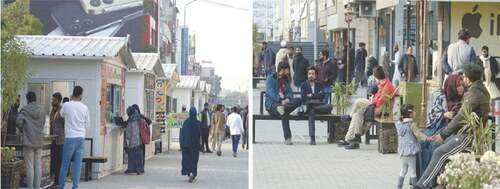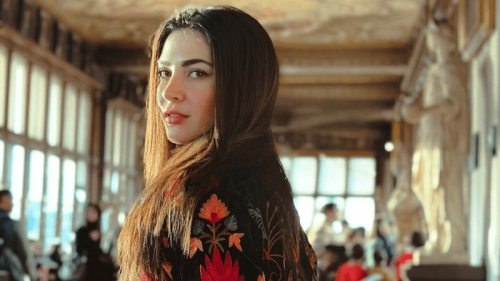In 1966, when Rawalpindi was declared the interim federal capital and Islamabad was to be built, the federal government took over a private arts council to promote art and culture in the country.
For some time, Pakistan Arts Council Rawalpindi was housed in small rented buildings, but in 1975, two years after the Pakistan National Council of the Arts was established, the council was handed over to the Punjab government and made a regional culture organisation for the Rawalpindi division, known as the Rawalpindi Arts Council (RAC).
It was also moved to the Freemasons’ building, known as the Masonic lodge and more commonly called Jadoo Ghar, on Haider Road and The Mall. First given a portion to use for its cultural activities, the entire building was handed over after the Zia regime banned the Freemasons for being ‘anti-state’ and ‘anti-Islam’.
The council has preserved some of the furniture used by the Freemasons, which was made by Uttam Singh in the 1940s. The furniture from the Masonic lodge is now kept in storage at the RAC.

The council moved to another rented building in 1983, and in 1986 then Punjab chief minister Nawaz Sharif gave the organisation land and funds to construct its own building, which was completed under chief minister Shahbaz Sharif in 1998 and where the council remains today.
The RAC’s two-storey building includes a modern auditorium, a theatre, three galleries, an administration area, teaching areas and a cafeteria. Its building is shared by the information department.
In its academy, students learn music and drama, as well as fashion design, textile design, ceramics and painting.
Throughout its history, the RAC has featured the work of various prominent artists in its galleries, from Sadequain to Zubaida Agha, Rabia Zuberi and Ghulam Rasul.

Its previous resident directors include Agha Babar, S.F. Ballay, Manzoor Sajid, Talib Hussain Bhatti, Pervaiz Hamid, C.M. Munir and Naheed Manzoor.
RAC Resident Director Waqar Ahmed told Dawn the RAC aims to promote art and culture, and has been renovating its complex at a cost of Rs98 million to give the auditorium and cultural centre a new look.
The RAC will play a vital role in promoting art and culture in the Potohar region after its facilities have been removed, he said, adding that renovation work will be completed quickly and there will be no compromises on quality.
Comprehensive planning has gone into the improvement of facilities at the council, Mr Ahmed said. The need for a performing arts academy has been felt for a long time, which would give more opportunity for people to take up the arts in the region.

In the last few decades, he said, the RAC has encouraged individual creative talent and fostered a sense of purpose in national identity and tradition. New talent has also been given a platform to excel at an international level.
Published in Dawn, September 30th, 2018














































Dear visitor, the comments section is undergoing an overhaul and will return soon.